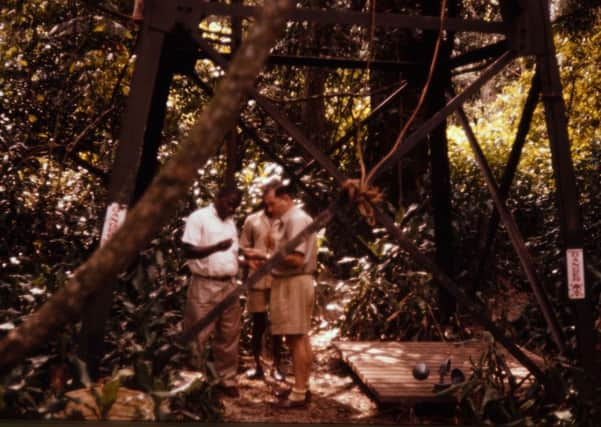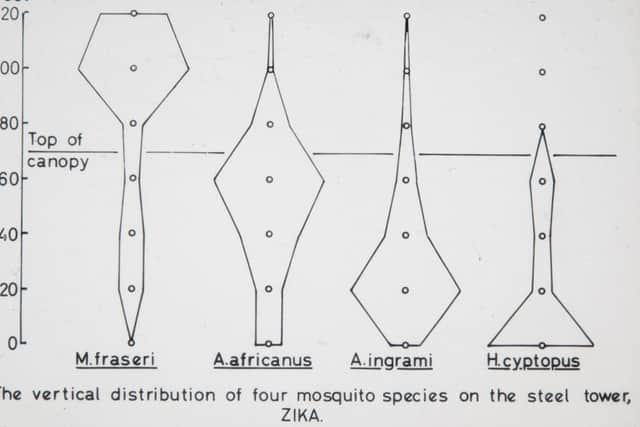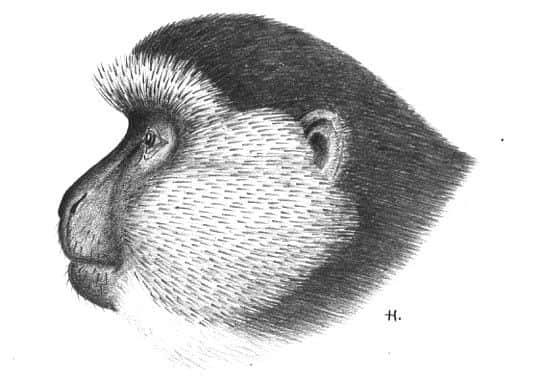Zika virus origins discovered in University of Glasgow vault


The research papers, dating back to 1947, belonged to Professor Alexander Haddow, a member of the University of Glasgow team that originally discovered the virus.
The papers include hand-drawn graphs, records of mosquito catch tables and slides showing the forests in Uganda where the virus was first found.
Advertisement
Hide AdAdvertisement
Hide AdThe find, hailed as one of the most exciting discoveries in the university’s archives, has revealed details of the first time researchers found the Zika virus in mosquitoes.


Haddow was a professor at the University of Glasgow, having studied zoology and medicine before he became an epidemiologist.
• READ MORE - Zika virus expected to spread to Europe’s holiday spots
He died in 1978, donating the contents of his personal archive, which also includes papers on yellow fever, to the university.
Re-discovered by senior Glasgow University archivist Moira Rankin this year, the vault includes images of Haddow working in the forests of Uganda.


It also includes a handwritten note detailing the first catch of mosquitoes carrying Zika virus.
Today, Zika has spread to much of South and central America and the Caribbean and is expected to arrive in parts of Europe by the summer.
Advertisement
Hide AdAdvertisement
Hide AdIn healthy people it is a mild and usually harmless infection, but if contracted during pregnancy can be deadly to an unborn child and lead to devastating developmental problems.
Ms Rankin said: “This is one of the most exciting discoveries we have made in the archive.


“We always knew we had some of Alexander Haddow’s materials, but we didn’t realise the amount of Zika-related content that was in there.
“It’s been a particularly interesting and important find given the university’s current involvement in Zika virus research.”
The Haddow Zika collection will form the basis of a panel discussion during the Glasgow Science Festival, called Zika Virus: Present, Past & Future.